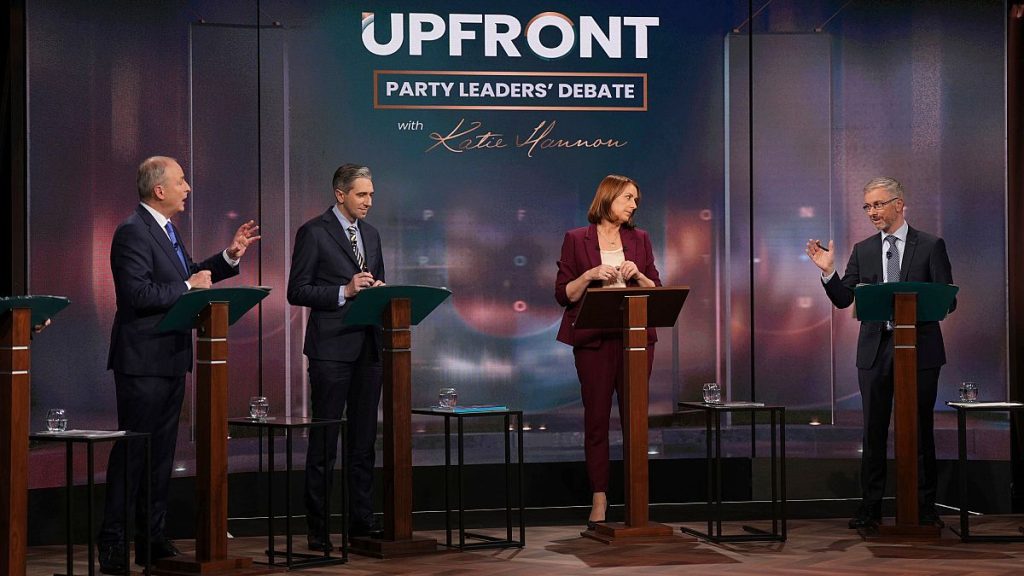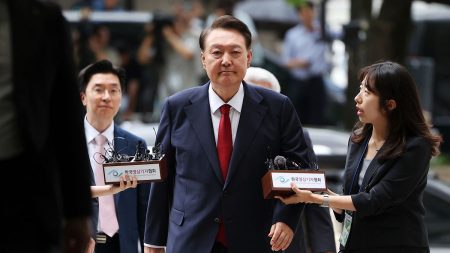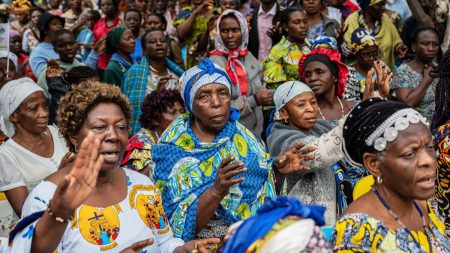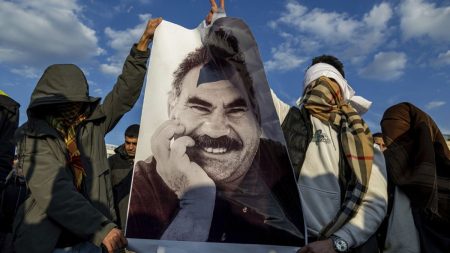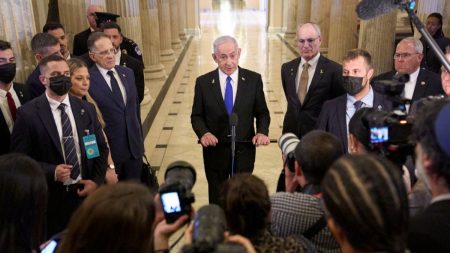In the evolving political landscape of Ireland, Sinn Féin, once emerging as a potential frontrunner to lead the Republic, now appears to be grappling to maintain relevance as the country’s traditional establishment parties, Fine Gael and Fianna Fáil, solidify their positions. After four years of unprecedented coalition governance by these erstwhile rivals, the political dynamics have shifted dramatically. While Sinn Féin has found some success in Northern Ireland, becoming the largest party in Belfast’s Assembly, its aspirations as a governing party in the Republic have faltered. The challenges before Sinn Féin amidst this shifting political terrain reflect broader global patterns where incumbents tend to be ousted, yet Ireland’s establishment parties seem poised to defy this trend.
The current coalition, consisting of Fine Gael and Fianna Fáil, alongside support from the Greens, navigates a precarious parliamentary majority. Following a controversial resignation of Fine Gael’s Leo Varadkar, Simon Harris has taken over leadership, earning the moniker “TikTok Taoiseach” for his active engagement on social media. The coalition partners are now strategizing to retain and possibly strengthen their grip on power. They face potential competition from left-leaning parties like Labour and the Social Democrats, who might play a crucial role in shaping the post-election scenario, depending on how the votes align.
Amidst these political maneuvers, the recent ruling from the EU Court of Justice against Apple has significant implications for Ireland’s economy. The court mandated Apple to pay €13 billion to the Irish treasury for tax inequalities, injecting much-needed funds into the government at a time fraught with economic uncertainties, including potential instability from transatlantic relations and ongoing conflicts impacting commodity prices. In response, Harris has proposed substantial financial buffers to stabilize public finances, while also facing increasing calls to enhance public service funding. However, a dominant concern among voters is the escalating housing crisis that has emerged as perhaps the most pressing domestic issue.
Ireland’s housing crisis has been exacerbated by a history of insufficient housing development following the 2007-2008 financial collapse, leading to a stark mismatch between available homes and the growing populace. The gravity of housing shortages has ignited widespread public concern, complicating Sinn Féin’s efforts to build a broad-based coalition on the left. The party’s historical base in working-class communities has expanded to urban professionals, yet the challenges of addressing housing and immigration have presented significant hurdles. Furthermore, the rise of far-right sentiments exploiting the housing crisis and spreading misinformation about immigrants has added complexity to the discourse, forcing Sinn Féin to recalibrate its position on immigration while appealing to its traditional leftist values.
Additionally, Sinn Féin finds itself contending with the unintended consequences of this rise in anti-immigrant sentiment, which has been inflamed by social media and resonates within certain voter blocs. The party has articulated a nuanced stance on immigration that seeks to balance their leftist ethos with responding to growing public concerns. Mary Lou McDonald, the party leader, has emphasized the importance of respecting local sentiments and avoiding narratives suggesting a sudden transformation into a racist society. However, the fine line between advocating for immigrant rights and responding to public anxiety remains a contentious issue within the party’s strategy.
As the elections approach, both Sinn Féin and the incumbent coalition parties face vulnerabilities that could shift the electoral balance. A noteworthy incident involving Simon Harris, where he responded dismissively to a disability care worker questioning government support, has drawn sharp criticism and potentially impacted Fine Gael’s polling. This scenario highlights the unpredictable nature of political campaigning and voter sentiment. Should Sinn Féin overcome its current challenges and secure a significant seat count, the integration of parties that have historically distanced themselves from Sinn Féin’s controversial past may still pose difficulties in coalition negotiations. Ultimately, the election results, determined through Ireland’s complex electoral system, will reveal the future of its political fabric, shaping the prospects for governance amidst enduring challenges such as the housing crisis and societal divisions.




